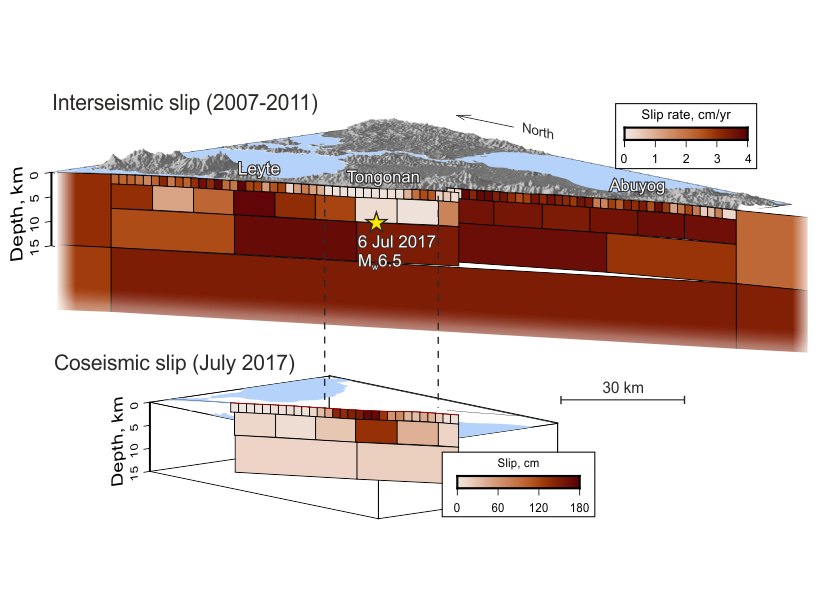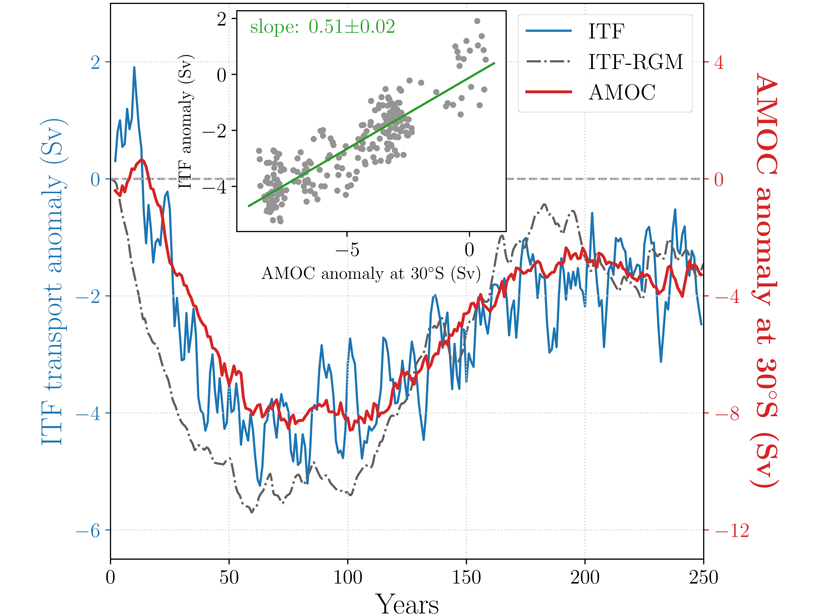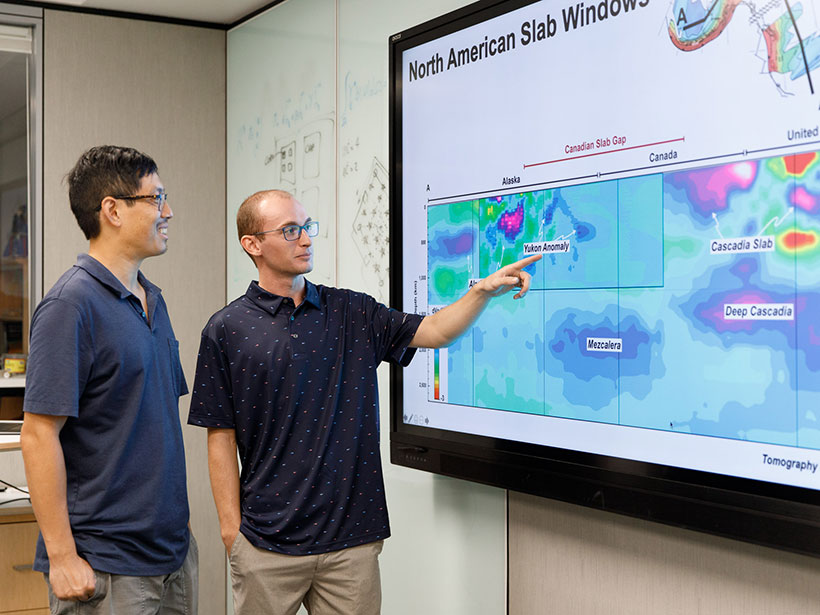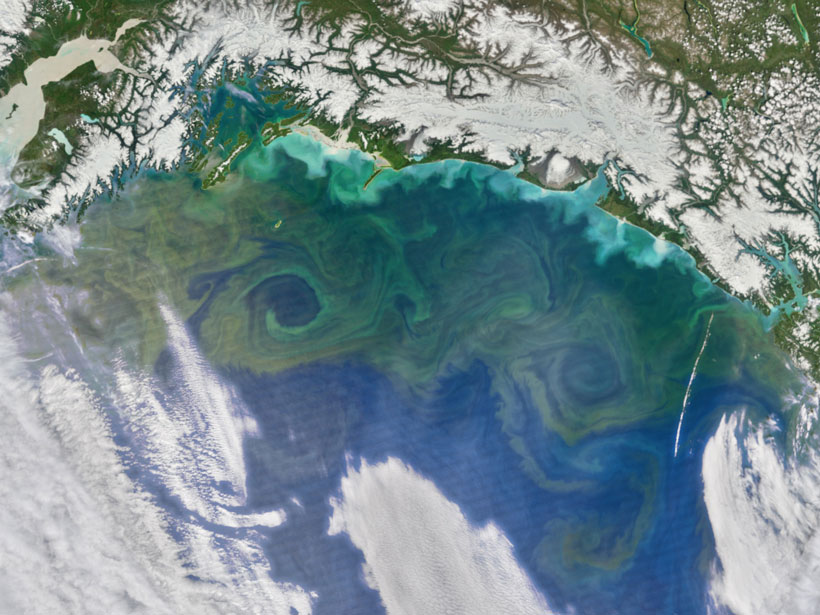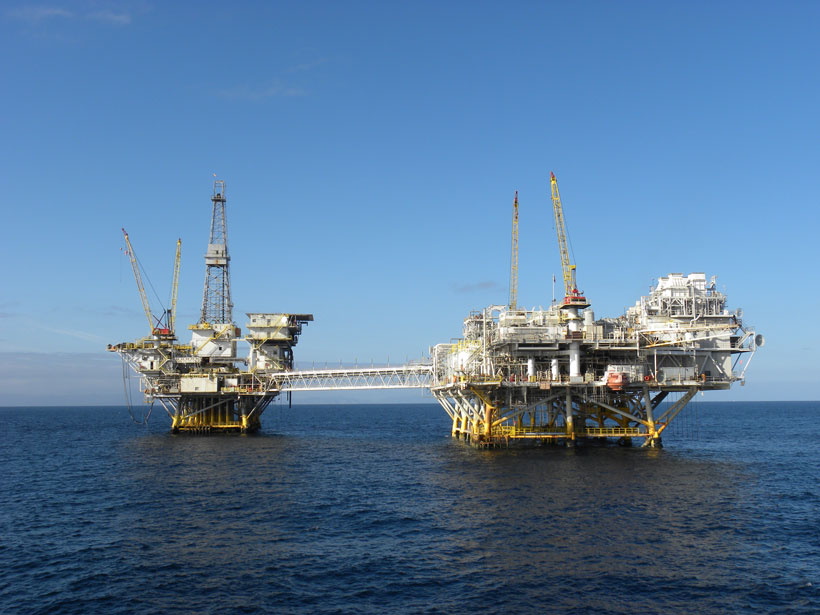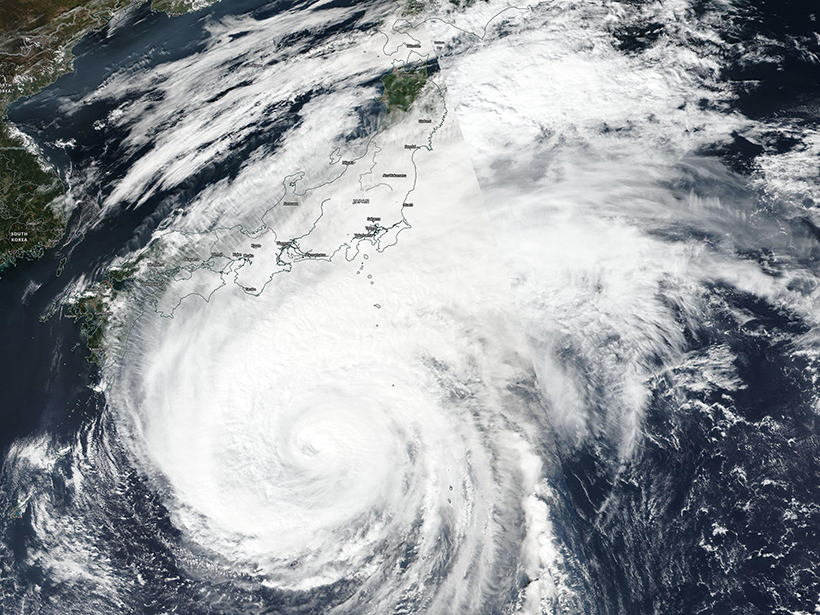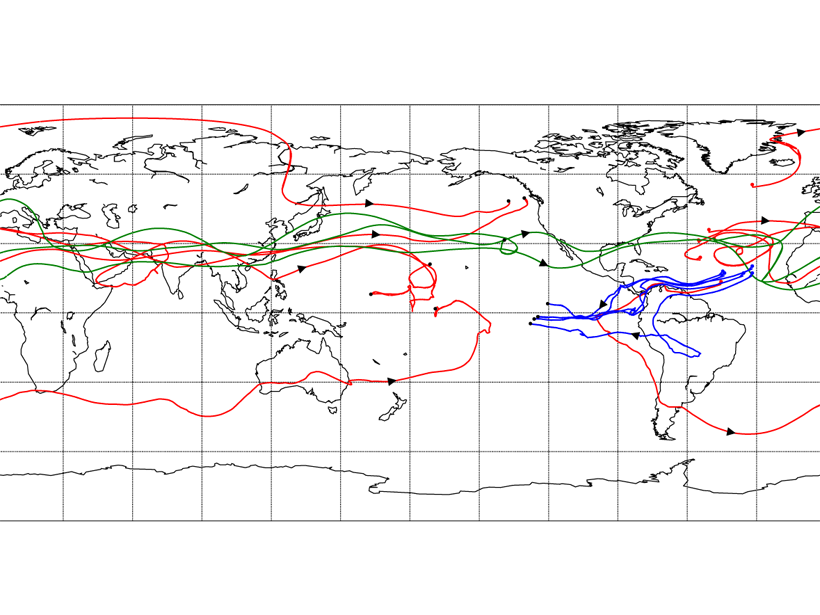During the last glacial period, a vanished ocean current may have made the land bridge between Asia and the Americas into a place where humans could wait out the ice.
Pacific Ocean
A New Picture of Seismogenesis on the Philippine Fault
Long-time series of satellite observation reveal that the creeping segment of the Philippine Fault is also capable of producing strong earthquakes, and show where these earthquakes might occur.
What Causes Centennial Changes in the Indonesian Throughflow?
Transient long-term changes in the strength of the Indonesian Throughflow are unexpectedly linked to circulation changes in the remote high-latitude North Atlantic.
Acidifying Oceans Could Get Help from Kelp
Forests of fast-growing kelp influence the chemistry of the water in which they live. A new study evaluates their potential to ameliorate ocean acidification in sensitive coastal ecosystems.
The Resurrection Plate Is Dead, Long Live the Resurrection Plate
Using a technique similar to taking a CT scan of Earth, researchers found the possible remnants of a long-debated “missing” tectonic plate.
A Promising Development for Detecting Ocean Productivity
A comparison of primary productivity measurements across the North Pacific Ocean demonstrates the potential for using autonomous instruments to discern effects of climate change on the marine food web.
Sediment Layers Pinpoint Periods of Climatic Change
Researchers studying sediment cores from the Gulf of Alaska have pinpointed when the Cordilleran Ice Sheet, now extinct, disgorged icebergs into the Pacific Ocean.
Los Costos Ecológicos de Remover las Plataformas Petroleras Mar Adentro en California
Las plataformas de perforación de petróleo- y gas-mar adentro son hábitats ricos para peces. Eliminarlas por completo resultaría en una pérdida del 95% de biomasa de peces, revela una nueva investigación.
Typhoons Getting Stronger, Making Landfall More Often
New research shows a growing threat from Pacific storms amid climate change.
A New Perspective on a Classic Climate Conundrum
The Lagrangian method applied to tracking water transport between the Atlantic and Pacific basins reveals a larger contribution by mid-latitude westerly winds across Eurasia than previously thought.


